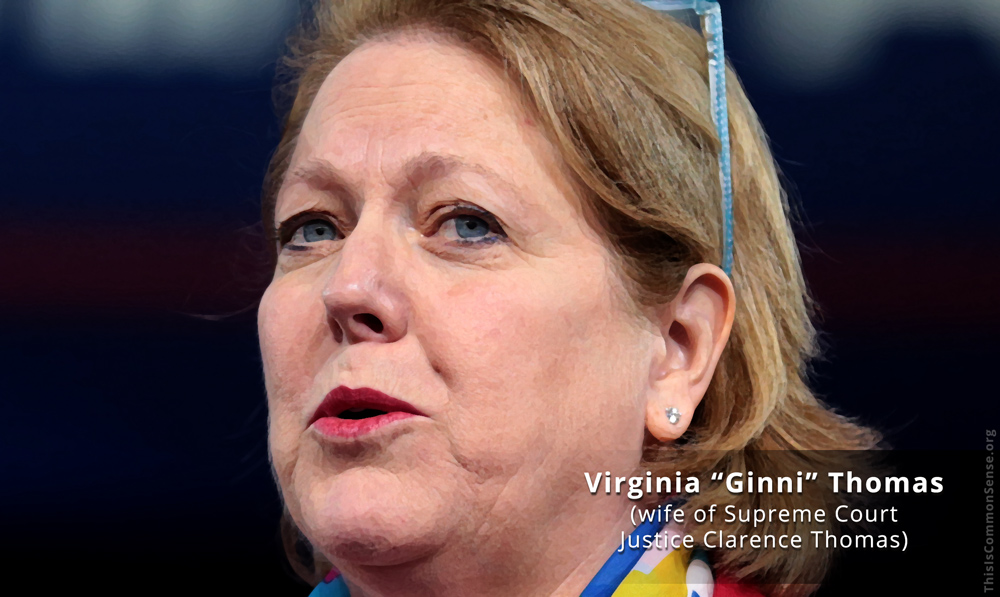“Stand down and let your better half do the job,” was the specific advice syndicated-columnist Kathleen Parker recently offered a woman, explaining that this woman’s “biggest mistake is that she thinks she’s important.”
Adding for emphasis: “She is not.”
Parker is not writing about Hillary Clinton, Michelle Obama, or Dr. Jill Biden. Her subject? Virginia “Ginni” Thomas, the wife of Supreme Court Justice Clarence Thomas.
Recollecting Ginni attending her writing seminar decades ago, Parker describes Ginni then as a “sweet, eager-to-learn 40-something,” who was “quite likable.”
“But,” claimed Parker, “something has happened to the Ginni Thomas whom I knew then.”
What exactly?
“Today,” we are told, “she’s entrenched with various hard-right conservative groups” and is “anti-feminist, anti-affirmative action, and, perhaps worst of all to her critics, pro-Donald Trump.”
Lions and tigers and bears, oh my! … seems Ginni Thomas dares to hold opinions with which Parker disagrees.
Moreover, explained the columnist, Ginni “has not been idle in politics, advocating for issues that, importantly, could come before the court on which her husband serves” — as virtually any issue under the sun could. Parker connected Ginni’s political participation to calls “on Clarence Thomas to recuse himself from cases in which his wife has been active.”
Every spouse of a Supreme Court justice has (or arguably should have) political views of his or her own. And the right — and propriety — to act on them.
Though Parker’s whole column is rich, the cream of the irony has to be first listing Ginni Thomas as an “anti-feminist” and then suggesting she shut up and leave politics to her husband.
This is Common Sense. I’m Paul Jacob.
See all recent commentary
(simplified and organized)
See recent popular posts

